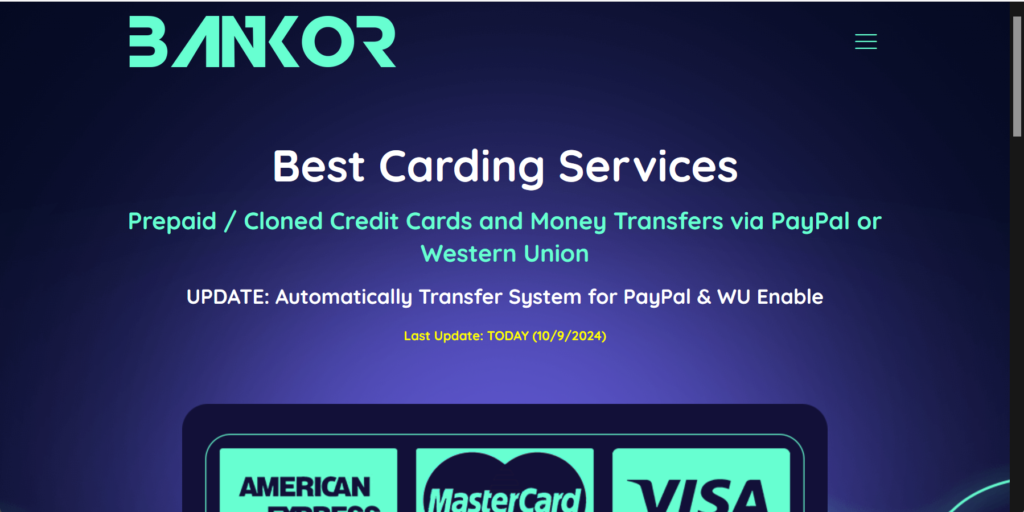Table of Contents
ToggleBankor – TOR Scam Report (1)
Onion Link: http://bankor5nng3x5yg2n5xg6ilu2mkk4abnojpzzvbmzhinkhr5p3fl6wyd.onion
Scam Report Date: 2024/01/27
Client Scam Report Breakdown
Original Report Summary:
The reported issue concerns a PayPal transaction that was not completed after the order confirmation on a DarkNet marketplace offering services such as cloned credit cards and fraudulent money transfers via PayPal and Western Union. According to the report, the client made a payment through PayPal, expecting to receive the goods or services based on the order confirmation. However, despite following the instructions and completing the payment, the client did not receive the promised product, and their emails were ignored, showing a complete breakdown in communication. This pattern of behavior is a common indicator of a scam in which the fraudulent vendor disappears after receiving funds.
The report mentions a lack of response to emails following the unfulfilled PayPal transaction. This is a critical element of the scam, as fraudsters typically cease communication once they have received the payment, making it difficult or impossible for victims to resolve disputes or reclaim their funds. In legitimate online transactions, customer service is responsive, and most platforms have dispute resolution systems in place. The promise of “100% customer satisfaction” and “full anonymous Bitcoin payments” in the original listing on Bankor Services suggests a facade of credibility, but in practice, this service fails to deliver, leaving the victim with no recourse after the payment is made.
Terminology plays a significant role in how this scam operates. The listing on Bankor Services advertises prepaid or cloned credit cards and money transfers through PayPal or Western Union, which are illegal services often found on DarkNet markets. “Cloned credit cards” refer to credit cards created using stolen card data, typically obtained via skimming devices or phishing attacks, as mentioned in the listing. Phishing refers to the fraudulent practice of sending emails to trick recipients into revealing personal information, such as passwords or account details, which is then used to steal funds or identities. In this case, the vendor uses phishing attacks to gather PayPal credentials. By offering these illicit services and accepting payments in Bitcoin, which is touted as anonymous, scammers aim to create the illusion of a secure and professional operation, while in reality, it allows them to remain untraceable and unaccountable.






